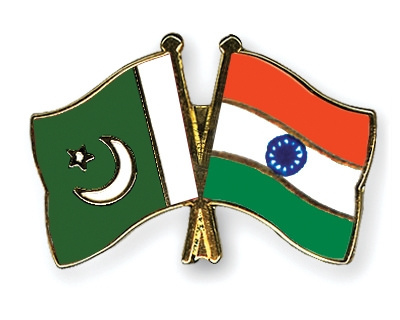When Pakistani angel investor and VP of TiE’s Lahore chapter, Humayun Mazhar, came to India in 2016 to network with Indian investors and entrepreneurs to understand the startup ecosystem here, he called the Indian startup ecosystem the “Silicon Valley for Pakistani startups”. The Pakistan startup ecosystem has been drawing inspiration from its Indian counterpart, just as the Indian startups drew theirs from Chinese and American startups.
There are many things common between India and Pakistan. They undeniably share similarities in demographics, culture, and certain languages. Hence, it is not surprising that the pattern of emerging markets, target audiences, are also similar. Moreover, the startup ecosystems also face similar problems. Thus, many startups in Pakistan are equivalents of Indian ones.
Momentum: Pakistan to Host Leading Startup and Tech Conference in Karachi
While Daraz.pk, Pakistan’s e-commerce marketplace is the equivalent of India’s Flipkart and Snapdeal, Zameen.com, Pakistan’s online real estate listings are inspired by India’s Magicbricks, Housing, and Commonfloor. Also, Pakistan’s job portals, Rozee and blue-collar job site Kamata Pakistan are similar to Naukri.com and Babajobs. The answer to India’s Zomato is Pakistan’s online restaurant guide and food ordering platform, Eatoye. Delivery models like India’s BigBasket and Grofers, and medicine deliver portals like Practo and NetMeds are followed by CartPK and Sehat. Online local service aggregators like UrbanClap, Quickr, Bro4u, and Dunzo, are mirrored in Pakistan’s Sukoon.
Inov8 Pakistan’s mobile payments solution is similar to India’s PayTM and MobiKwik. Also, while online events listing and booking platforms like BookMyShow and Insider are reflected in BookMe. Hutti.pk, the online tours and travels aggregator in Pakistan follows India’s MakeMyTrip and ClearTrip.
Pakwheels, Pakistan’s number one online used cars portal, though similar to India’s Cardekho, came years earlier on the scene. While Cardekho was launched in 2008, Pakwheels has been around since 2003. Thus, in this case, India cannot take the credit of inspiring its neighbor.
However, while drawing inspiration from India helps Pakistan’s startup scene in several ways, entrepreneurs in Pakistan must also remain aware of differences they have from the Indian set up so as to not make any costly mistakes. For example, Pakistan is not as strong in technology or in producing a tech-ready workforce yet. It is imperative that they bring themselves up to scale as well as explore areas relevant to Pakistan.
In the last five years, Pakistan’s startup ecosystem has grown quite a lot. The government of Pakistan has started taking notice of the successes garnered and hence is moving to help out in this area. The China-Pakistan Economic Corridor (CPEC) will surely help encourage business. Some private organizations and events too help encourage the entrepreneurial spirit of the nation. Like India, the advent of smart phones and internet penetration is creating opportunities every day for new ideas in business.
Though, Pakistan does face issues that hinder it from becoming the startup hub in Asia, such as lack of infrastructure in several areas, energy crisis, and red-tape in some institutions. Funding is also one of the factors that startups in Pakistan struggle with. Compared to India, the government organizations in Pakistan have not taken much initiative to help startups, though Gov Plan9 and Technology Incubation Center, are a few. Private incubators helping out youngsters are Nest i/o, TiE’s Lahore chapter, LUMS, Center for Entrepreneurship, i2i, Microsoft Innovation Center, DotZero, and Basecamp.
Delhi-based AaramShop.com Launches Services in Pakistan
Pakistani startups choose to set up business mostly in the IT sector and online retail. Daraz.pk and ShopHive are thriving as sellers of large local brands online. This indicates that spending online is becoming popular. Other online websites are the price comparison site, PriceOye.pk and online payment solutions like EasyPay.
However, apart from online retail, Pakistan’s startups are yet to explore other areas in the ecosystem. While B2C startups are rising, the B2B segment hasn’t seen a lot of experimentation. It is only a matter of time when entrepreneurs realize the opportunities awaiting and then the startup ecosystem in the country is bound to become more progressive. In addition, a temptation successful startups in Pakistan face is of selling off to a big buyer, which can, at times, nip a budding business before it can reach full potential.
Still, as things change slowly but steadily, Asia’s or even the global call to join the startup cosmos will soon ensure that Pakistan overcomes all hindrances and emerges as one of the forerunners of the Asian startup market.












